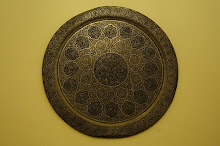
On a recent trip to New Orleans, I came across an interesting and unusual breed of street artist.
Sitting on the sidewalk, outside a popular jazz club, along the raucous and uber-happening Frenchman Street, was a young poet-for-hire. For a price he offered to churn out quality verse on any topic thrown to him. He came fully equipped with a decrepit manual typewriter, a small table and one of those folding lawn-chairs (complete the beer holders) that you often see at the beach.
There was a sort of brilliance in the whole getup. He was not only offering the invaluable service of insight-on-demand, as well as the entertainment of the written word, but was also acting as a kind of street performer: revealing how the poet undertakes his mind-bending labours (a craft so often performed behind closed doors).
Here's how the whole thing works:
As the intoxicated throng makes its way past the artist, one person usually stops, curiously takes notice, and asks the poet to pronounce on some topic of import – the name of a musician or an actor, or some other pop culture reference.
At first the writer reveals a look of disappointment. He then quickly bounces back, consulting with the muses and then dives head-first into the work.
For several minutes, the customer watches fascinatingly as the poet fights to pluck words from thin air. He laboriously enciphers his art onto a ragged sheet of paper by way of his tired old machine. Long, awkward pauses are interrupted by sudden bursts of inspiration and a renewed tapping at the keys.
The death throes-like process of poetry-making finally comes to an end, and voila, the customer is presented with the finished piece.
The reaction to the poems depends on the quality of the verse and how much alcohol the customer has consumed beforehand. But often enough there seems to be an overwhelming sense of anti-climax, and even confusion.
Then came my turn to approach the New Orleans oracle with a request for some verse of my own.
John - “I’d like a poem. How much do you charge?”
Poet - “It depends. Usually about twenty dollars.”
John - “I’ll give you eight.”
Poet - (pauses) “I’ll do it for ten.”
John - “Deal.”
Poet - “What’s the topic?”
John - “The Middle East.”
Poet – (another pause) “Oh.”
John – Is that alright?
Poet – Yeah, but that subject will cost you more money.
John – I don’t think so. We came to an agreement.
Poet – Alright.
Below is the text of that poem, written, while i waited, on a sultry night along one of New Orleans’ main drags..
*
THE MIDDLE EAST
everyone wants war:
excuses are everywhere –
territory, history,
ingrained philosophy;
the superiority of
whatever group one’s in.
everyone wants to win,
and victory seems guaranteed.
each propaganda machine
speaks its own local metaphor
for global narratives
force-fed to us by the U.S.
operatives, newspaper tickers,
we watch from home
- by Allan Andre, NOLA, 6/11/10



























